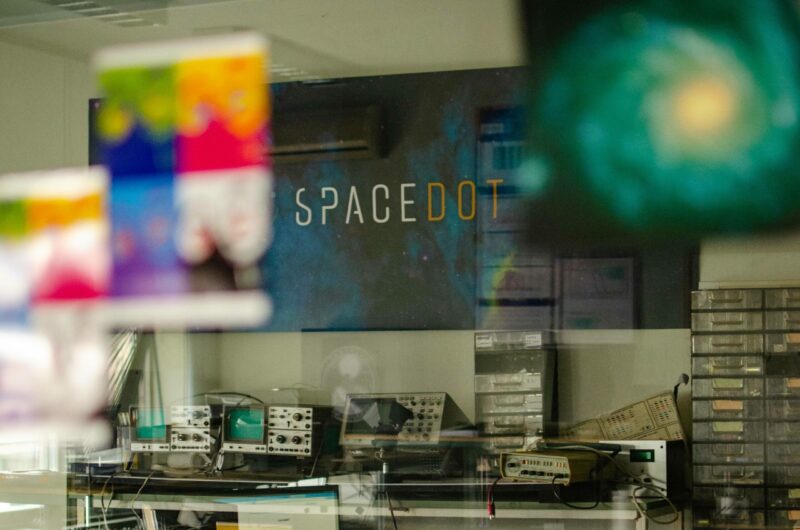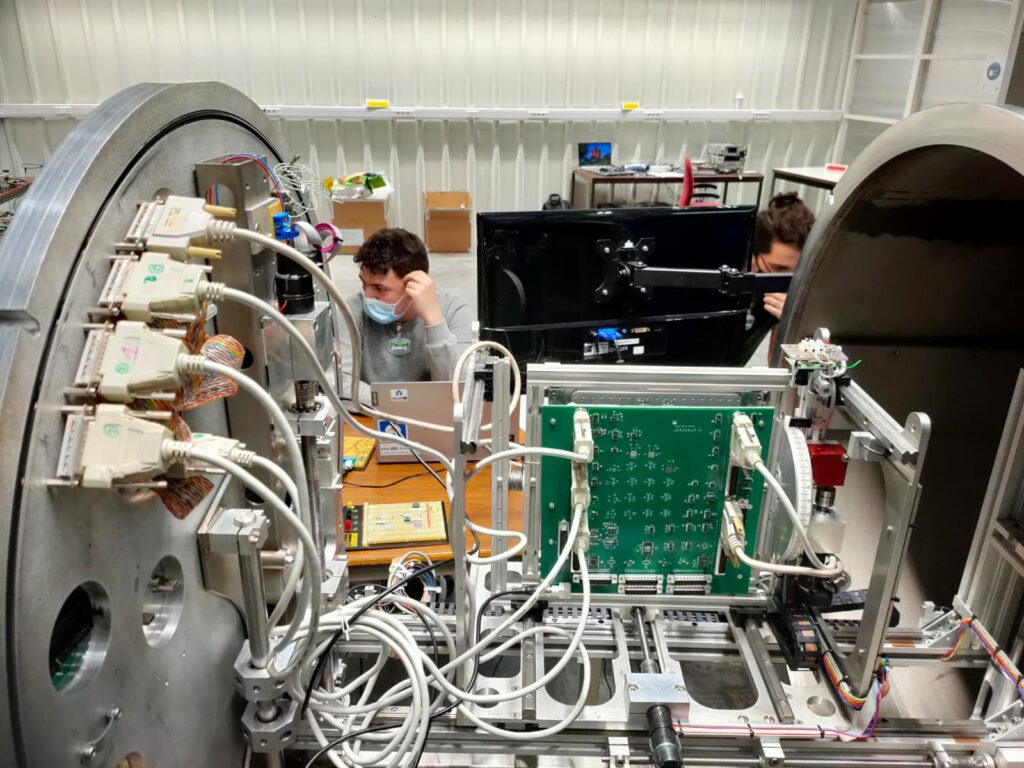Post Date: January 15, 2022

Today, January 15th, 2022, marks the first birthday of SpaceDot. “If you have the time, use it to get ready,” Chris Hadfield, a Canadian astronaut, said. Without wasting any time, our team worked intensively throughout 2021, passing some of its crucial milestones that enabled us to reach the construction phase of our satellite.
So, let’s move on to a breakdown of the events that preceded SpaceDot, the birth of the team, the achievements until today, and what the future holds.
Fasten your seatbelts!
The idea of the AcubeSAT mission came during the summer of 2018, with the purpose to study the effects of microgravity and cosmic radiation on cells. While we were struggling to figure out how to build a nanosatellite, the applications for the 3rd round of the “Fly Your Satellite!” (FYS) program, hosted by the European Space Agency (ESA) Educational Office, popped up. The team grabbed the chance and began the preparation of the proposal, which was submitted on October 11th, 2019, and we were astounded to be selected to participate in the FYS program in February 2020.
A whole new series of deadlines emerged, and with the help of ESA experts, subsystems began to work on their specifications. Then, the pandemic said “hello”. But, the team persevered. New members came in, many lines of code were written every day, and documentation was finalized. The entire team diligently composed and submitted the first version of the Critical Design Review, a document analyzing the design of the satellite and the mission. Days passed, a new year entered, and a new team was born!
The story of AcubeSAT in some ways is a story of underdogs. Just a handful of people started with very limited resources, in a university with no space engineering expertise, trying to build a nanosatellite. The odds were greatly against us. But with hard work and countless hours spent, we managed to secure a place in the third edition of FYS.
— Anastasis, Systems Engineer
AcubeSAT was initially hosted by Aristotle Space and Aeronautics Team (ASAT), but the project quickly grew and became independent. On January 15 of 2021, SpaceDot was formed to fulfill the AcubeSAT project and its mission. SpaceDot is a non-profit volunteering and interdisciplinary team, supported by the Aristotle University of Thessaloniki (AUTh). Our team is founded on the principles of open-source research; experimental results, code schematics and general knowledge can be accessed by anyone. Our goal is to pave the way for innovative research on space applications, while supporting the scientific and academic community in this field. Love and passion for the team and its project are our defining characteristics.
Inside the team, possibilities are endless; You can learn state-of-the-art programing techniques, while cooperating with students and experienced engineers from all around the world. And if that wasn’t enough, every single line we write is available to every human on earth! One day, our work might end up on Mars, or even further away…
— Konstantinos, Systems Engineer
The team was formed at a difficult time, but 2021 was a successful year. An important milestone in the team’s history took place in Belgium at the Heavy Ion Facility of UCLouvain, in May 2021. There, members of SpaceDot had the chance to do the First Component Testing, sponsored by ESA Education, in order to ensure that our on-board computer subsystem, the “brain” of our satellite, can withstand the harsh space conditions.

In August, ESA experts finally gave us the green light to transition from the design to the construction phase of our nanosatellite!
The pandemic imposed multiple problems in the whole team, including lab restrictions, delays on orders, low-spirited members (always a case while in quarantine!). However, neglecting all issues here and there, the focus and love from all members for SpaceDot brought the team to the completion of our common target of submitting the CDR and the official “You are ready to build it!” confirmation.
— Thodoris, Project Leader
Sharing our enthusiasm about space with the public is one of the main drivers of our inspiration and creativity. After months of social distancing, we were delighted to participate in the 85th Thessaloniki International Fair (TIF), where we had the chance to re-connect with the public.
In 2021, our team nearly doubled its size, reaching more than 80 members, spread across 6 European countries. SpaceDot has become one of the largest student research teams in Greece and across Europe, and we hope we grow even bigger this year.
We saw together our whole adventure, which is just the beginning to something greater. We came far but there is still a long road ahead of us. The manufacturing of our nanosatellite AcubeSAT has just started. None of this could have been done without the support from AUTh, ESA Education, our sponsors, and our valuable and hard-working members.
Join us in this journey, as we materialize our satellite and provide a home to new ideas. Follow us on Social Media to never miss out the news! And remember: “We are more than dots in space”…
